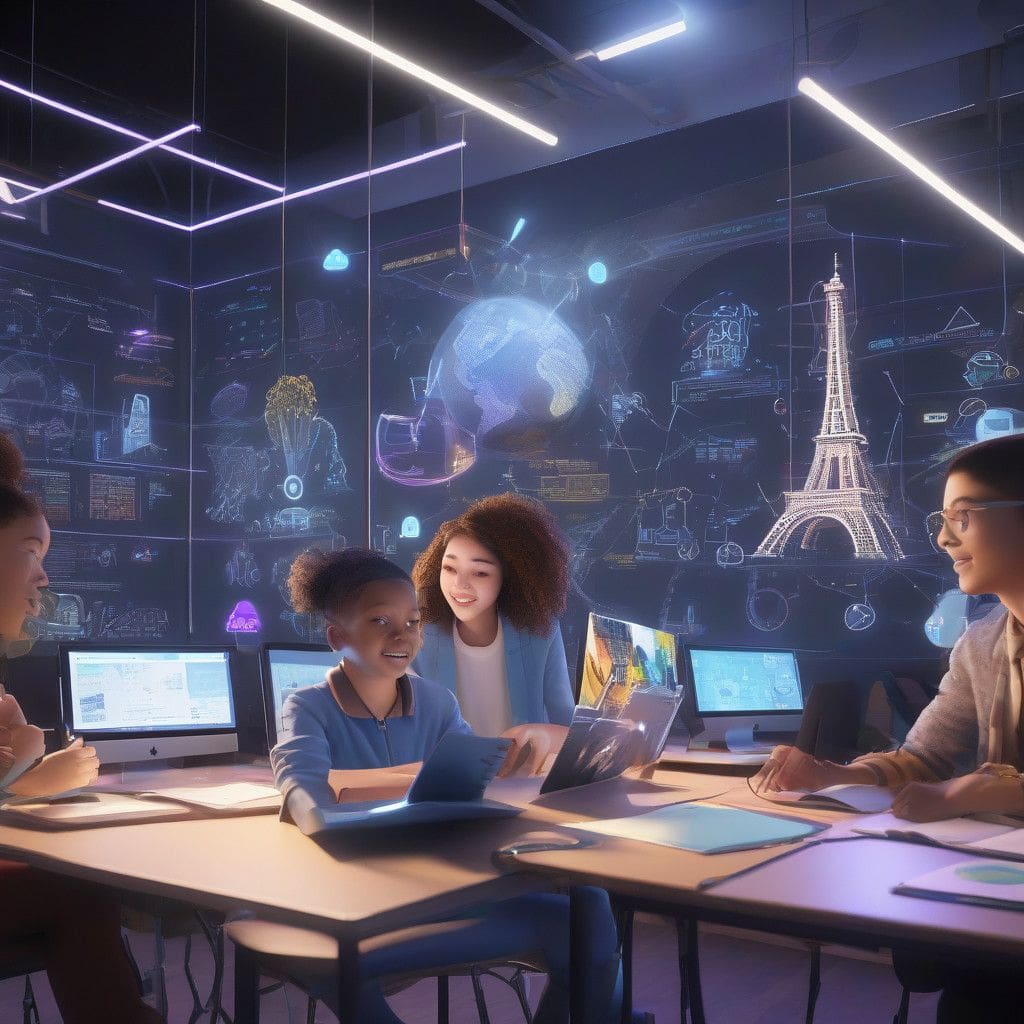In a sweeping transformation of the educational landscape, universities across the EU and UK are launching innovative metaverse-based courses that allow students to engage in immersive learning experiences. This ambitious initiative, spearheaded by Meta—the technology giant behind Facebook and Instagram—aims to create ‘metaversities,’ which are digital replicas of real university campuses. The use of virtual reality (VR) technology in these educational environments promises to revolutionize traditional classroom settings, offering a rich blend of interactivity and engagement.
The initiative has already seen notable implementations. For instance, the University of Leeds in the UK has introduced metaverse classes focusing on theater studies. This allows students to explore their creativity in a fully immersive environment that enhances collaboration and participation. Similarly, Spain’s University of the Basque Country plans to roll out virtual physiotherapy and anatomy classes by February 2025, utilizing the benefits of 3D modeling and simulation to enrich their students’ learning experiences.
In Germany, institutions in Hannover are planning to launch immersive classes in time for the 2025 school year. With the assistance of VictoryXR, Meta’s VR partner, these institutions are positioned to benefit from the innovative possibilities afforded by metaverse technology. VictoryXR has already collaborated with over 130 campuses globally, recognizing “digital twin” campuses as ideal environments for field trips, group experiments, and real-time projects.
The impact of these developments is further strengthened by the provision of VR headsets. Meta has equipped educators at various universities, including prominent institutions like Imperial College London, to facilitate pioneering teaching methods in disciplines ranging from the sciences to language arts. This hands-on approach not only emphasizes the importance of technology in education but also serves to engage students on a new level.
Meta asserts that these metaversities signify a crucial leap forward in educational practices. By creating interactive and engaging learning environments, students can participate in simulations and collaborate more effectively than in traditional video-based courses. The virtual classrooms aim to help students build skills that are increasingly necessary in today’s job market, such as adaptability, digital literacy, and collaborative problem-solving.
Consider the practical applications: students attending a metaverse course on anatomy might conduct virtual dissections or engage in real-time collaborations that transcend the physical limitations of a traditional classroom. This added layer of interaction is particularly beneficial for courses that rely heavily on visual and experiential learning.
Beyond mere attendance, metaverse classes present opportunities for personalized learning experiences. Students can engage at their own pace while teachers can tailor resources more effectively, facilitating a deeper understanding of complex subjects. This adaptability may help improve academic performance, particularly for those who struggle in conventional settings.
The movement towards metaverse education reflects a broader trend in digital transformation in higher education. As the pandemic has normalized online learning and remote collaborations, educators recognize the need to integrate new technologies to offer robust educational experiences. The flexibility afforded by metaverse environments can foster greater inclusivity, making education more accessible to those who may face barriers in traditional settings.
Nevertheless, challenges remain ahead. Institutions must invest in infrastructure, training, and ongoing support to ensure that both educators and students can navigate this new terrain effectively. Additionally, as with any technological advancement, concerns regarding data security, student privacy, and the digital divide must be addressed to ensure equitable access across diverse student populations.
These pioneering steps taken by universities in the EU and the UK present a compelling case for the transformative potential of the metaverse in education. As this trend continues, educators and students alike must stay informed and adaptable, ready to confront the opportunities and challenges that lie ahead.
This shift toward metaverse-based education may very well signal the beginning of a new era in how learning is conceived and implemented, ultimately shaping a generation of students equipped for the complexities of the modern world.












